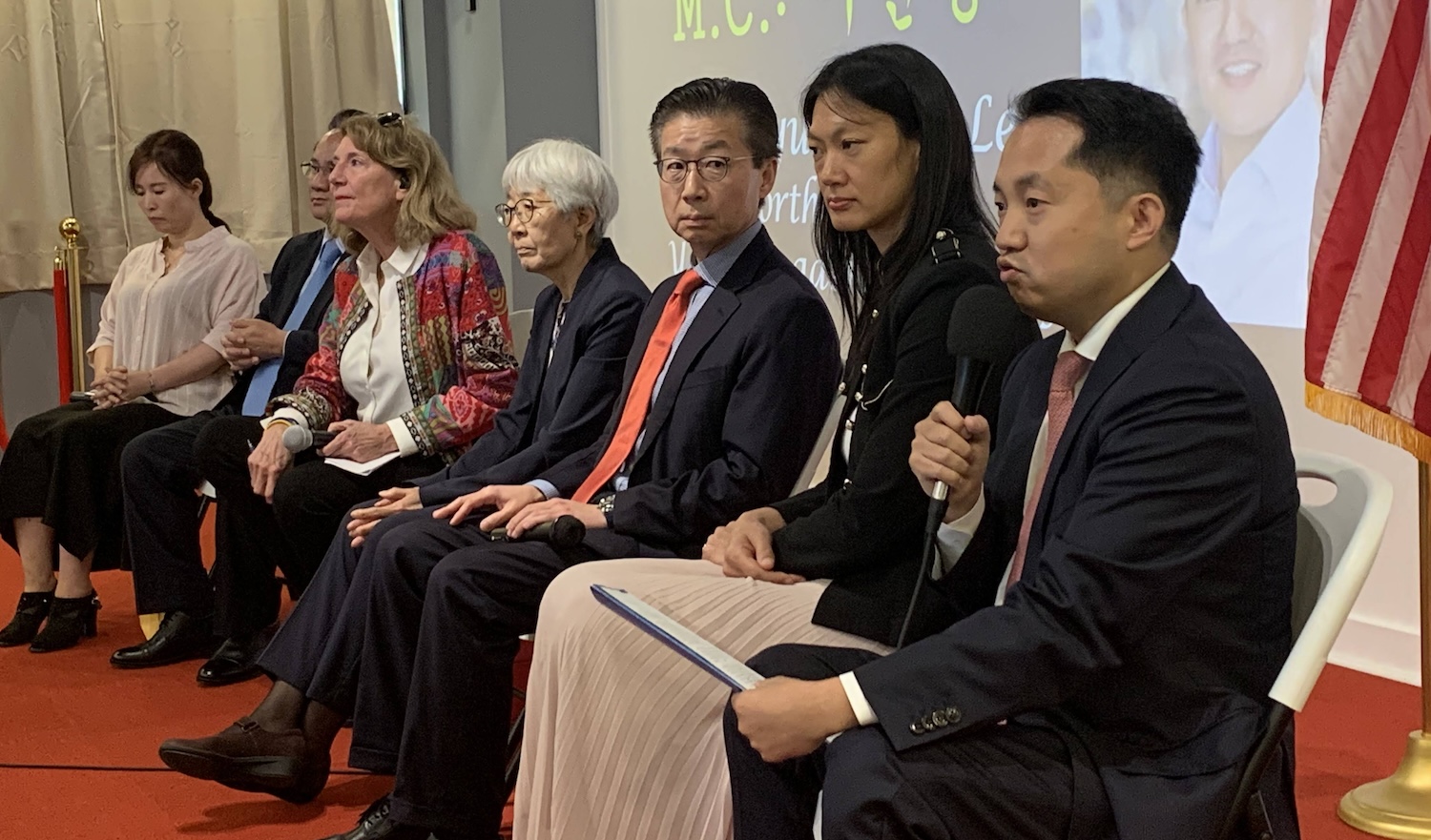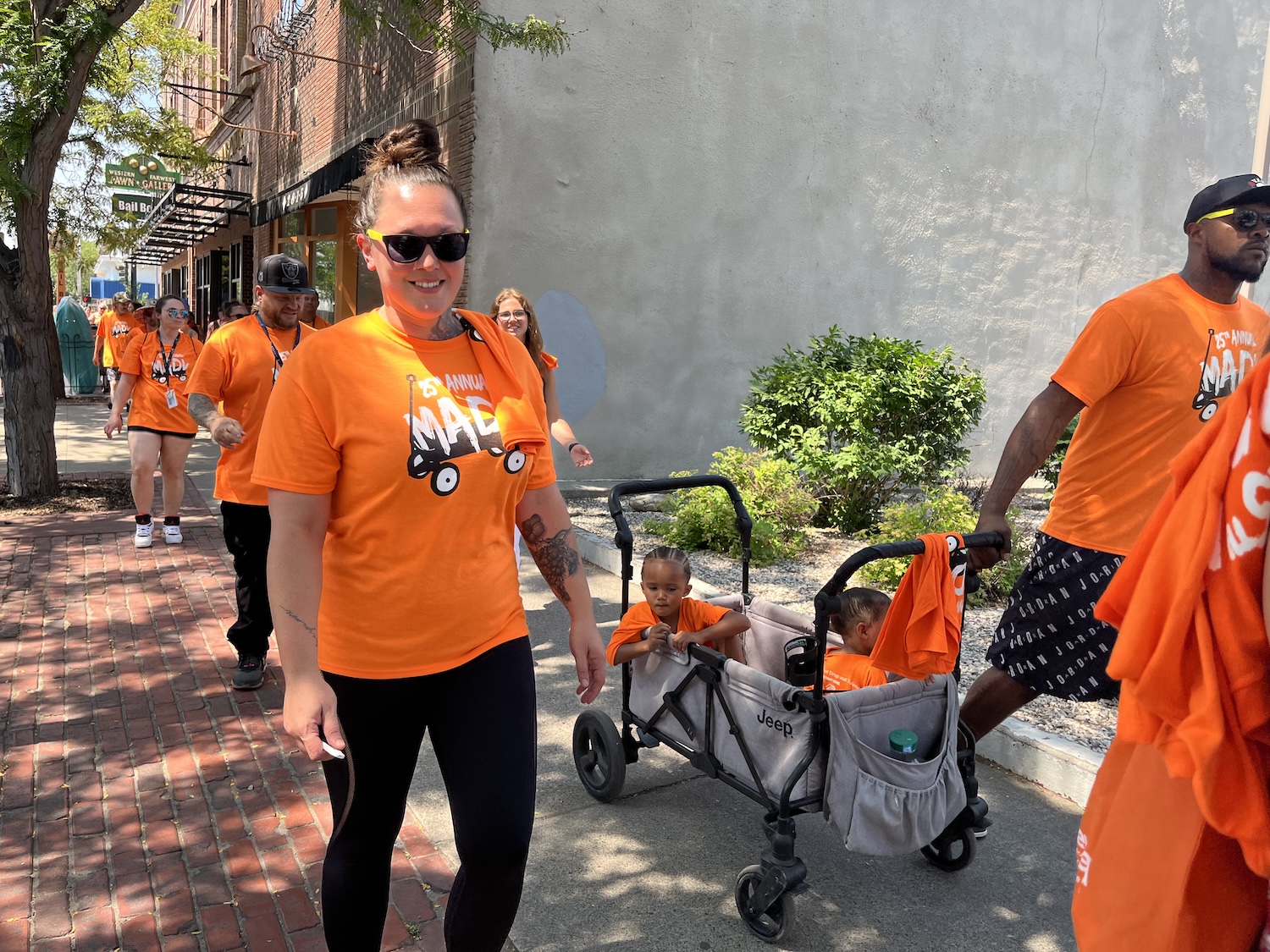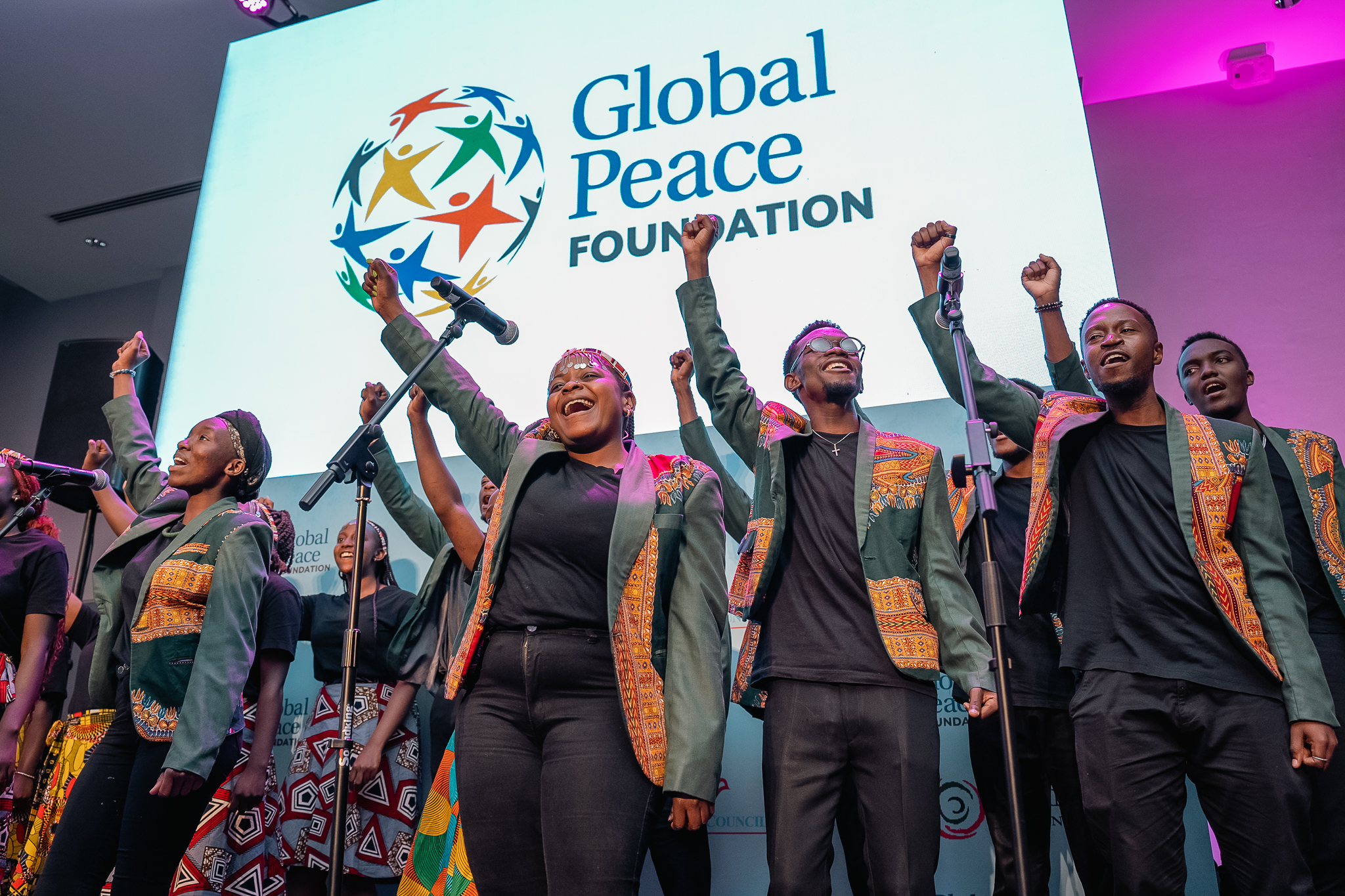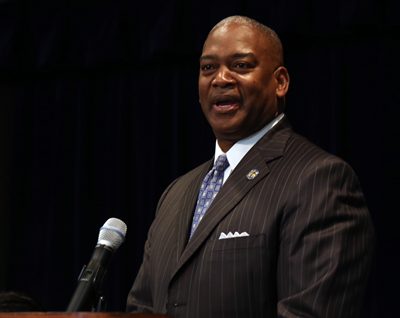
Georgia State Sen. Emanuel Jones, co-chair of the 2012 Global Peace Convention
ATLANTA, Dec. 1— Georgia State Sen. Emanuel Jones, co-chair of the 2012 Global Peace Convention in Atlanta, welcomed business leaders, government officials, NGO leaders, and entrepreneurs to a pre-convention Global Peace Business Forum: “Peace and Prosperity through Trade and Investment,” at that Marriott Marquis Hotel in Atlanta on November 28. The forum focused on the often unrecognized role of the private sector business in poverty reduction, sustainable development, and regional stability, and particularly highlighted emerging markets in Africa and the autonomous region of Kurdistan in northern Iraq.
“You can understand the relationship between business and peace when you aren’t hearing any news,” said John Dickson, President of the World Trade and development Group and Founding Chair of the World Trade Association’s Committee on Peace and Stability through Trade.
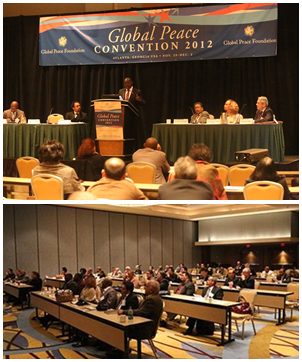
Speakers from Africa, Iraq and the United States speak.
“When India and Pakistan were on the brink of nuclear conflict some years ago, Dickson said, “it was the private sector, not government agencies or NGOs, who insisted that the leadership stand down in order to preserve the economies in these nations.
“You don’t bomb your customers,” Dickson added; “that’s bad business.” He also noted that New York Times economist Thomas Friedman had found that no two countries that both had a McDonalds have ever gone to war with each other.
When trade crosses borders, tanks don’t
Extreme income disparity and lack of a strong middle class has kept societies unstable throughout the world. Conversely, economic activity thrives in an environment of political and social stability. Little known to most of the world, the autonomous republic of Kurdistan in northern Iraq is a remarkably stable and peaceful state in region beset by conflict.
Kurdistan’s Minister of Education Asmat Khlid and Kurdistan-American businessman and investor Raad Ayer described a society where people don’t lock cars, homes or even shops and stalls. They noted that there has not been a single U.S. or Coalition casualty in Kurdistan since the overthrow of the regime of Saddam Hussein. Moreover, the country is fertile, has oil and resources, and has remarkable archeological and cultural tourism potential.
“You don’t bomb your customers. That’s bad business. No two countries that both have McDonalds restaurants have ever gone to war.”
The panel on “African Perspectives and Opportunities” presented startling findings on the emergence of a dynamic continent, rich in resources and arriving at a turning point in approaches to governance, stability and growing international investment.
Representatives from Uganda’s government, a Kenyan industrialist, a U.S. NGO supporting self-reliance through investment in small scale agriculture, presented varying but optimistic perspectives on Africa’s potential in the twenty-first century.
“Everywhere opportunity knocks,” said Dr. Manu Chandaria, CEO of Comcraft Group in Kenya, with investments in 19 African countries. “Before there was always fighting going on. Now I believe Africans have seen the light, that there can never be prosperity side by side with war. Today there are huge investments from Asia; China alone made $89 billion from Africa. Human chromosomes all come from Africa; It is time to come home.”
Laurence Baer explained how Green Self Reliance: Building Small Farmer Productivity in Africa was improving the lives of rural farmers. “Small farming is good for the labor market. Their biggest problem is lack of capital to expand, and with small investments in local fertilizer and irrigation, farmers who are earning $500 a year are now earning $5000.”
A Uganda representative, Toks Onabano, Executive Director of the Pan African American Chamber of Commerce, dispelled any idea that Uganda was at war or still in the shadow of the era of Idi Amin. “Uganda is known as the best tourist destination,” he said. “It is ever green, a wonderful climate. I want to assure you that Uganda is a great place for investment. We have political stability for 25 years and a strong desire, especially among youth, this maintain this peace.”
Cynthina Nash, Director of the World Trade Center Atlanta and honorary Consul of the Republic of Liberia, talked about Atlanta’s growing economic ties with Africa through the World Trade Center, and explained how Liberia, settled by African Americans, many from Georgia, in the early nineteenth century, drew the two together.
She also outlined the economic costs of war, reducing national GDG by 2-3 percent and diverting development resources to military use and destruction of infrastructure.“Other costs, of course, can’t be measured—disease, displacement, death, and poverty. Peace is a precondition of prosperity, but economic cooperation and openness leads to peace. And we in the business community have a vital role to play in promoting peaceful commerce for the welfare of all people.”
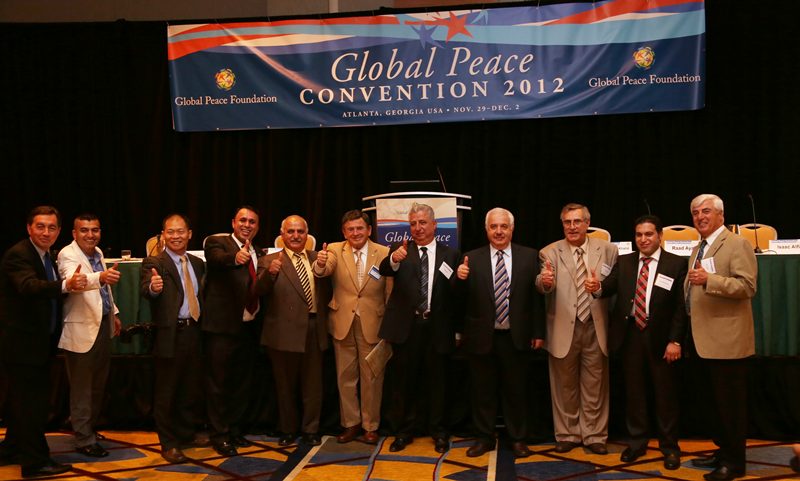
Global Peace Business Forum prior to the Global Peace Convention 2012 in Atlanta.

